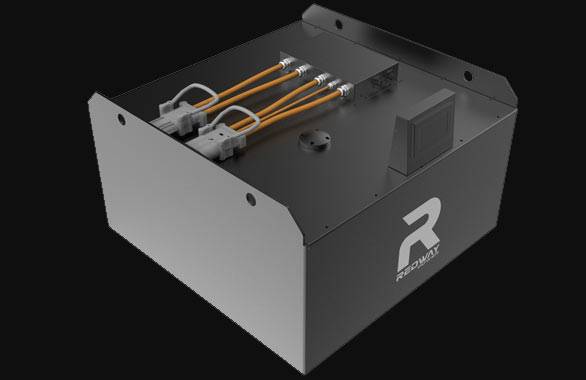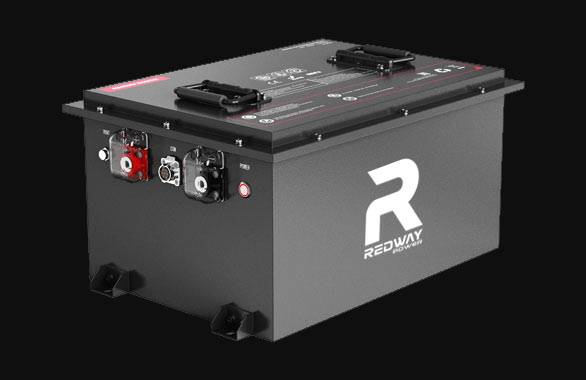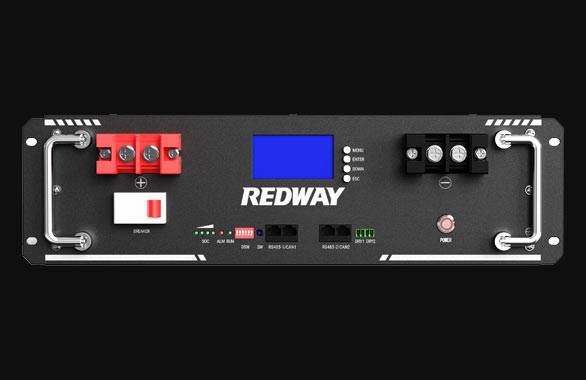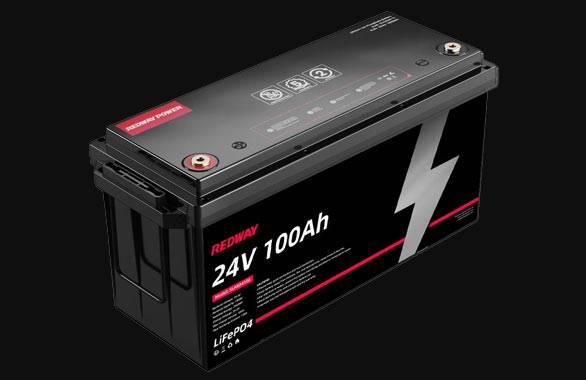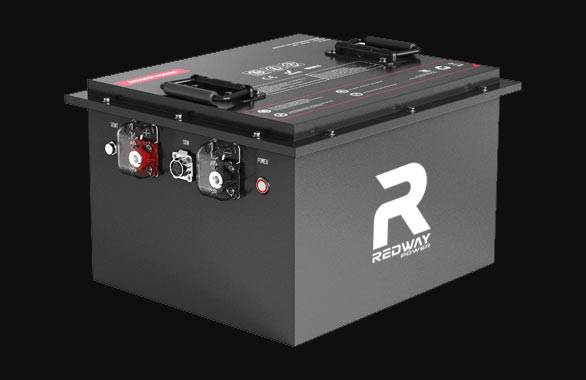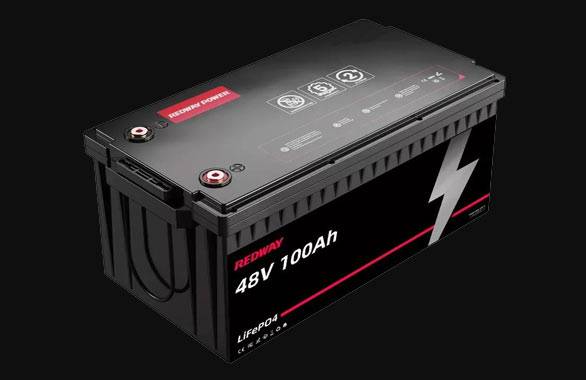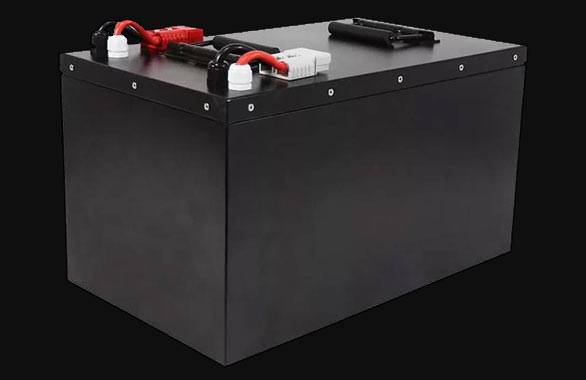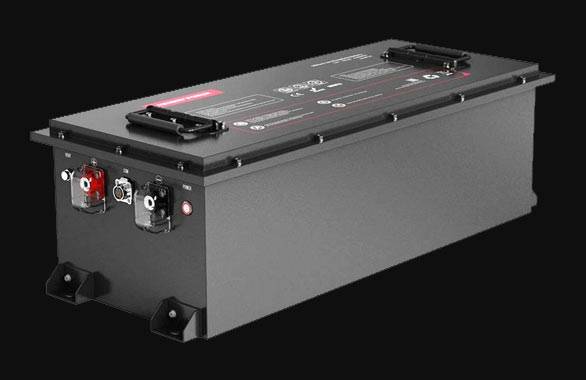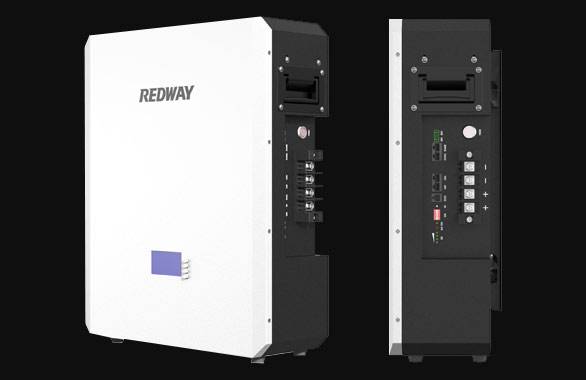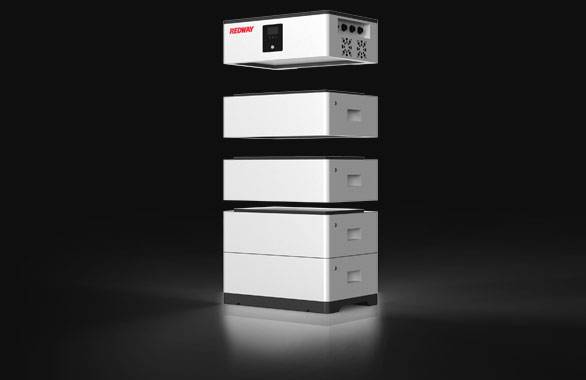- Forklift Lithium Battery
- Golf Cart Lithium Battery
- Rack-mounted Lithium Battery
51.2V 100Ah Rackmount LiFePO4 Battery
8000 times (80% DOD 0.5C)
Optional SNMP for TELECOM - Car Starter Battery
- 12V LiFePO4 Battery
12V 150Ah Lithium RV Battery
Bluetooth App | Self-heating
LiFePO4 | Group 31
UL 1642 | IEC 62619 - 24V LiFePO4 Battery
- 36V LiFePO4 Battery
- 48V LiFePO4 Battery
- 60V LiFePO4 Battery
60V 100Ah Lithium Battery (AGV, AMR, LGV)
Peak Discharge Current 400A
500 x 298 x 349 mm - 72V~96V LiFePO4 Battery
72V 100Ah Lithium Golf Cart Battery
Peak Discharge Current 315A (10S)
740 × 320 × 246 mm - Wall-mounted Lithium Battery
51.2V 100Ah 5kWh
Wall-mounted Battery532 x 425 x 170 mm / LiFePO4
>8000 Cycles (80% DOD 0.5C)
RS485 / CAN-bus
for Solar Home ESS - Home-ESS All-in-One
51.2V 32kWh
All-in-On HESS SystemPowerAll
51.2V / LiFePO4
>8000 Cycles (80% DOD 0.5C)
RS485 / CAN-bus / WiFi
All-in-One for Home ESS
How Does the Conversion from Ah to kWh Affect Battery Life Estimation?
Converting amp-hours (Ah) to kilowatt-hours (kWh) is essential for accurately estimating battery life. This conversion helps users understand the total energy capacity of a battery, allowing for better planning and management of energy consumption. For instance, a 100Ah battery at 12V translates to 1.2kWh, providing a clearer picture of how long it can power devices.
Understanding the Conversion from Ah to kWh
The conversion from amp-hours to kilowatt-hours is a fundamental aspect of battery management. It not only aids in estimating battery life but also enhances the understanding of energy storage and usage in various applications. Below, we delve deeper into how this conversion impacts battery life estimation.
1. The Conversion Formula
To convert amp-hours to kilowatt-hours, use the following formula:kWh = (Ah × V) / 1000 Where:
- kWh = kilowatt-hours
- Ah = amp-hours
- V = voltage of the battery
For example, for a 100Ah battery at 12 volts: kWh = (100 Ah × 12 V) / 1000 = 1.2 kWh. This calculation is crucial for determining how long a battery can power devices based on their energy requirements.
2. Impact on Battery Life Estimation
Understanding the kWh capacity allows users to estimate how long a battery will last under specific loads. For instance, if you have a device that consumes 200 watts, you can calculate the expected runtime:Runtime (hours) = kWh / Power Consumption (W)Using our previous example:Runtime = 1.2 kWh / 200 W = 6 hours This estimation helps in planning energy usage and ensuring that devices operate efficiently without unexpected shutdowns.
| Battery Specification | Voltage (V) | Capacity (Ah) | Total Energy (kWh) | Estimated Runtime at 200W |
|---|---|---|---|---|
| Battery A | 12 | 100 | 1.2 | 6 hours |
| Battery B | 24 | 50 | 1.2 | 6 hours |
| Battery C | 48 | 25 | 1.2 | 6 hours |
Latest News
- Recent advancements in battery technology are leading to improved energy density and efficiency, making conversions from Ah to kWh even more relevant.
- The growing popularity of electric vehicles has increased the demand for accurate battery life estimations based on these conversions.
- New regulations are being introduced to standardize battery capacities and improve consumer understanding of energy storage solutions.
Redway Expert Comment
“At Redway Power, we recognize that converting amp-hours to kilowatt-hours is vital for effective energy management. This conversion not only aids in estimating battery life but also empowers users to make informed decisions about their energy needs. Our Lithium LiFePO4 batteries provide accurate capacity measurements and reliable performance for various applications.”
The conversion from amp hours (Ah) to kilowatt hours (kWh) affects battery life estimation by providing insights into total energy available based on voltage levels; this allows users to calculate expected runtime more accurately against specific device power requirements. Understanding this relationship aids in selecting appropriate batteries tailored for specific applications.
Relation to Lead-Acid Replacement Batteries
The conversion from Ah to kWh is particularly relevant when considering Lead-Acid Replacement Batteries. Many applications transitioning from lead-acid to lithium batteries benefit from a clearer understanding of energy capacity and efficiency. Lithium batteries often provide higher energy density, making them ideal replacements.
Recommended Product: Lithium LiFePO4 Batteries for Enhanced Performance
For clients looking to upgrade their systems, we recommend our Lithium LiFePO4 Batteries. These batteries offer superior capacity management, longer lifespans, and enhanced performance compared to traditional lead-acid options.
Top 6 Alternatives or Competitors in Battery Solutions
Here’s a comparison chart featuring Redway Power alongside its main competitors that also offer lithium battery options:
| Company Name | Type of Battery | Lithium Option Available? | Average Price Range |
|---|---|---|---|
| Redway Power | Lithium LiFePO4 Batteries | Yes | $180 – $300 |
| Renogy | Lithium & Lead-acid Batteries | Yes | $150 – $250 |
| Battle Born | Lithium Batteries | Yes | $200 – $350 |
| Victron Energy | Lithium & Lead-acid Batteries | Yes | $120 – $220 |
| AIMS Power | Lead-acid & Lithium Batteries | Yes | $130 – $240 |
| Samlex America | Lead-acid & Lithium Batteries | Yes | $100 – $200 |
In conclusion, converting amp-hours to kilowatt-hours is essential for accurately estimating battery life and managing energy usage effectively. By understanding this conversion, users can make informed decisions regarding their energy needs, particularly when considering high-performance solutions like those offered by Redway Power.
FAQs
What is the relationship between Ah and kWh?
Amp hours (Ah) and kilowatt hours (kWh) are both units of energy measurement, but they quantify different aspects. Ah measures electric charge over time, while kWh measures energy consumption or production. The relationship between them is defined by the formula:
kWh=(Ah×V)/1000
where V is the voltage of the battery.
Does higher Ah mean longer battery life?
Higher amp hours (Ah) generally indicate a greater battery capacity, allowing it to deliver a certain current for a longer time. This can result in longer usage before depletion. However, actual battery life also depends on discharge rates, battery chemistry, and usage conditions.
How many kWh is a 100 Ah battery?
To determine how many kilowatt hours (kWh) a 100 Ah battery can provide, use the formula:
kWh=(Ah×V)/1000
For example, a 100 Ah battery at 12V provides:
(100×12)/1000=1.2 kWh
How to convert battery Ah to kWh?
To convert amp hours (Ah) to kilowatt hours (kWh), use the formula:
kWh=(Ah×V)/1000
Multiply the Ah value by the voltage (V) of the battery, then divide by 1000. This gives you the energy capacity in kWh.
Why is understanding the difference between Ah and kWh important for solar energy systems?
Understanding the difference between Ah and kWh is crucial for solar energy systems because it helps in sizing battery storage and optimizing energy usage. Knowing the energy capacity (kWh) allows for better planning of energy production, storage, and consumption, ensuring the system meets energy demands effectively.
What factors should you consider when converting Ah to kWh for battery capacity?
When converting Ah to kWh, consider the battery’s voltage, as it directly affects the energy capacity. Additionally, account for the battery’s discharge rate, efficiency, and operating conditions, as these factors can influence the actual usable energy and performance.
How can you ensure accurate conversions between Ah and kWh for energy audits?
To ensure accurate conversions between Ah and kWh during energy audits, use precise voltage measurements and maintain consistent units. Document all data carefully, and consider the battery’s efficiency and discharge characteristics. Regularly calibrating measuring instruments can also enhance accuracy.
Why might the conversion from Ah to kWh be necessary for electric vehicle battery management?
Converting from Ah to kWh is essential for electric vehicle battery management because it helps monitor energy consumption and range. Understanding kWh allows for better planning of charging strategies, assessing battery health, and optimizing performance, ultimately enhancing the driving experience and efficiency.


